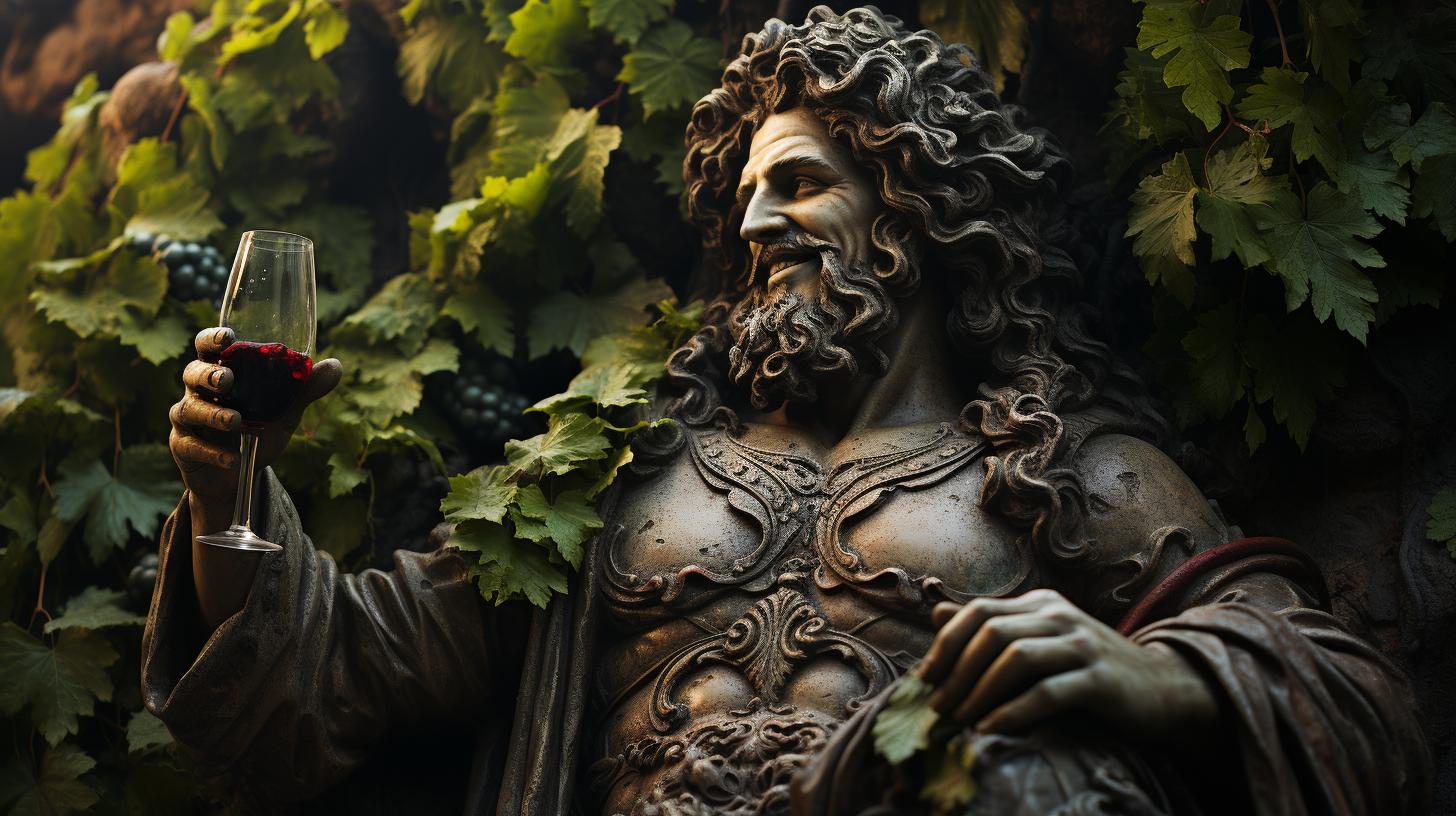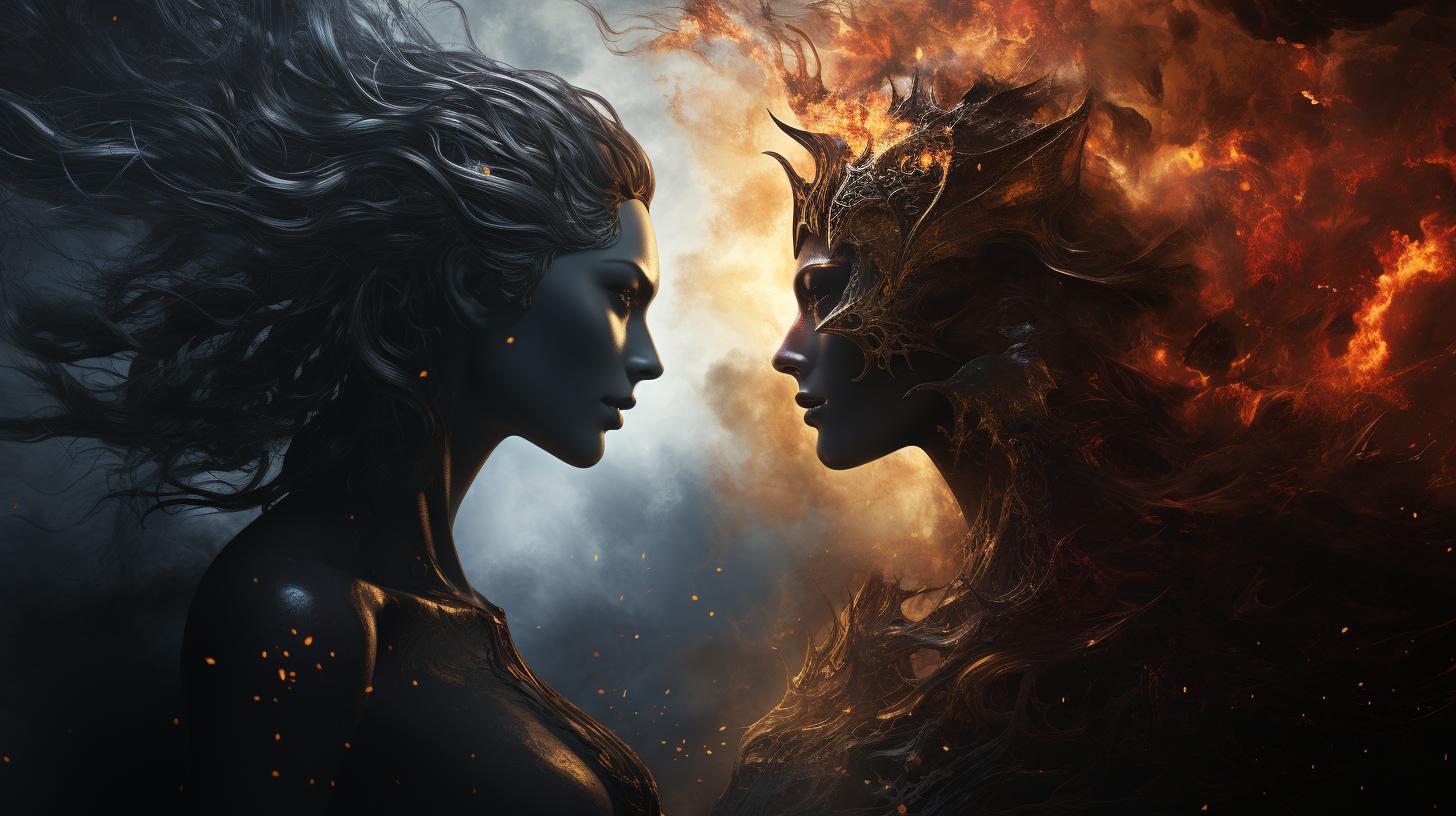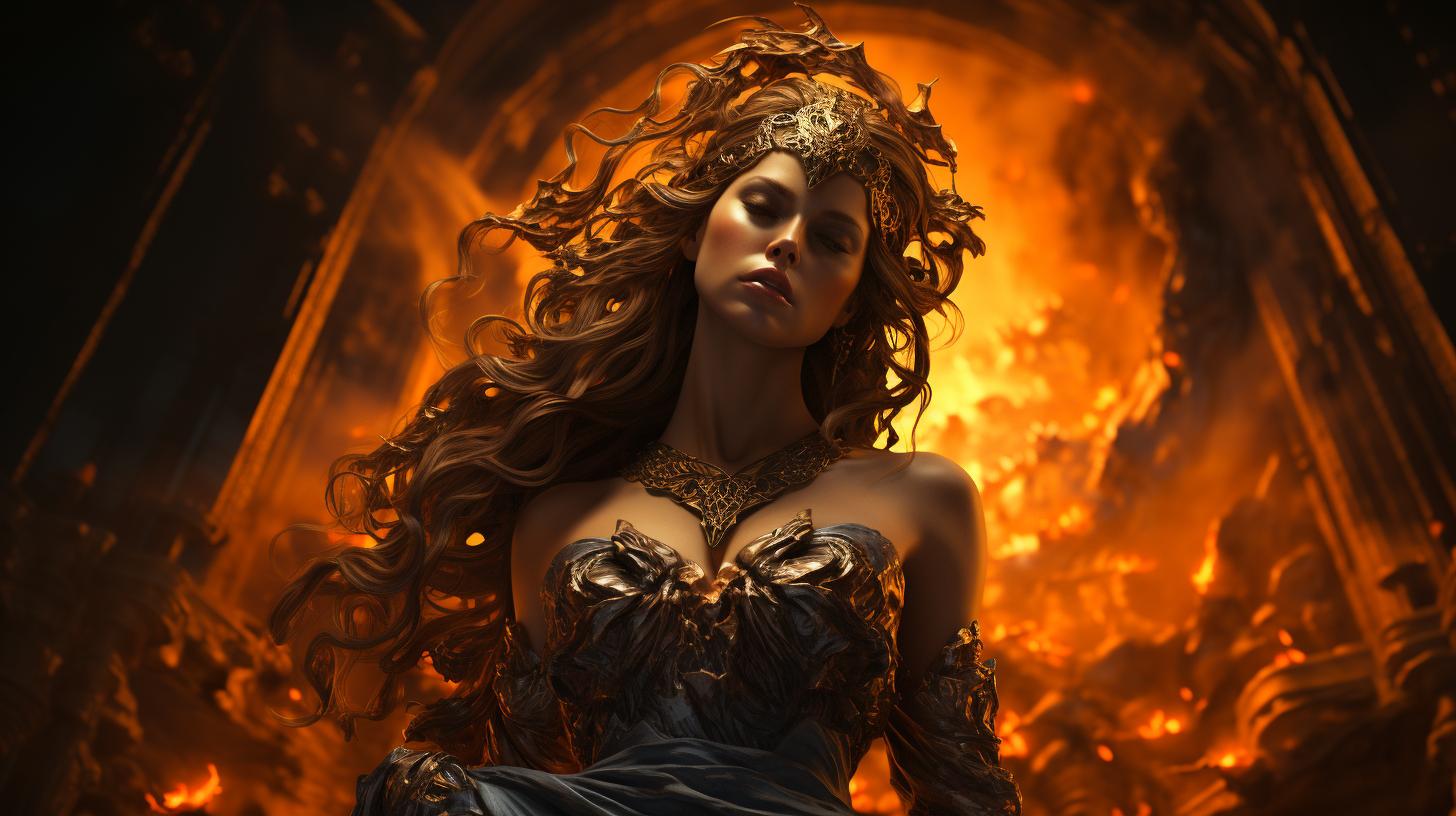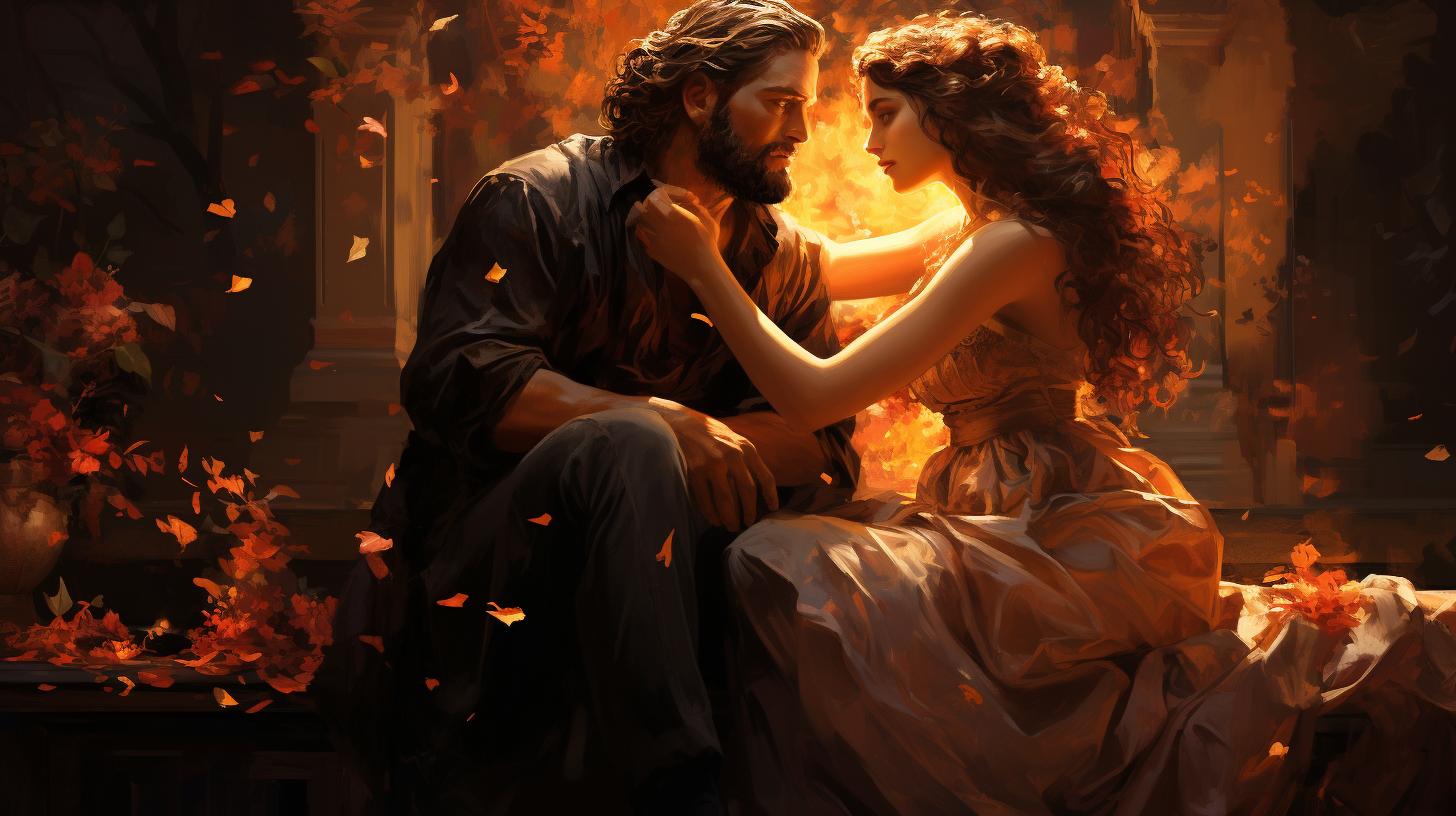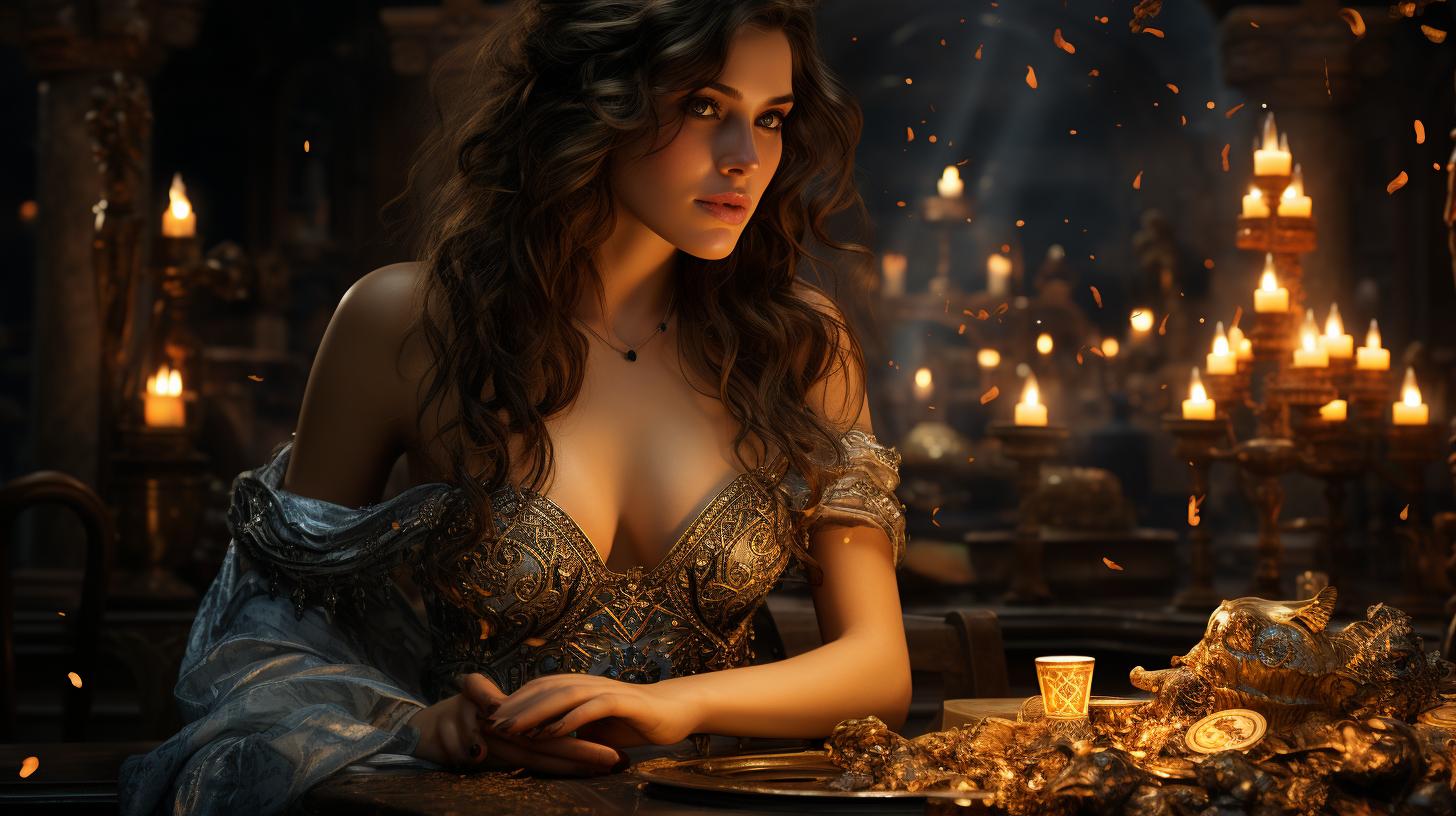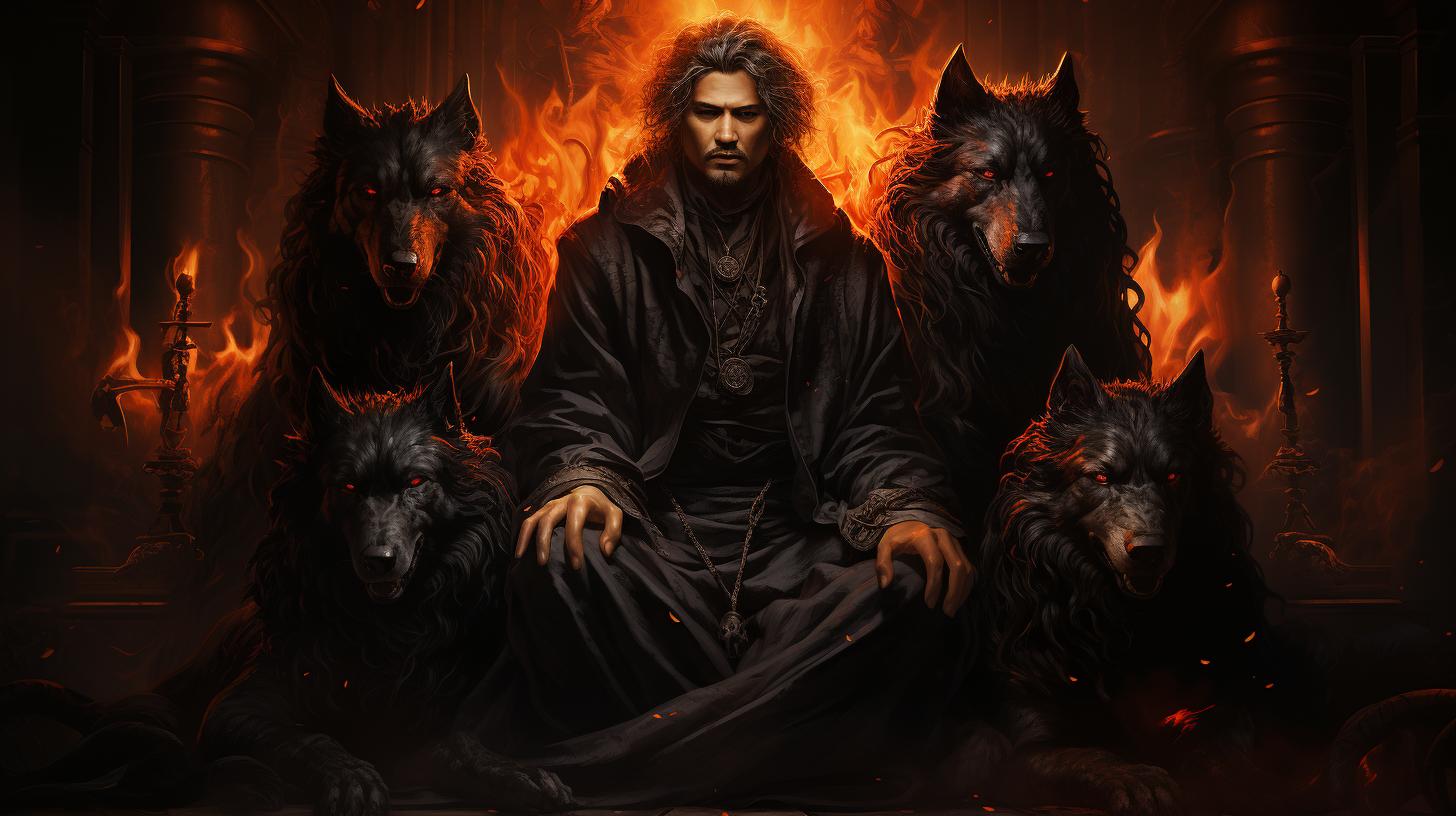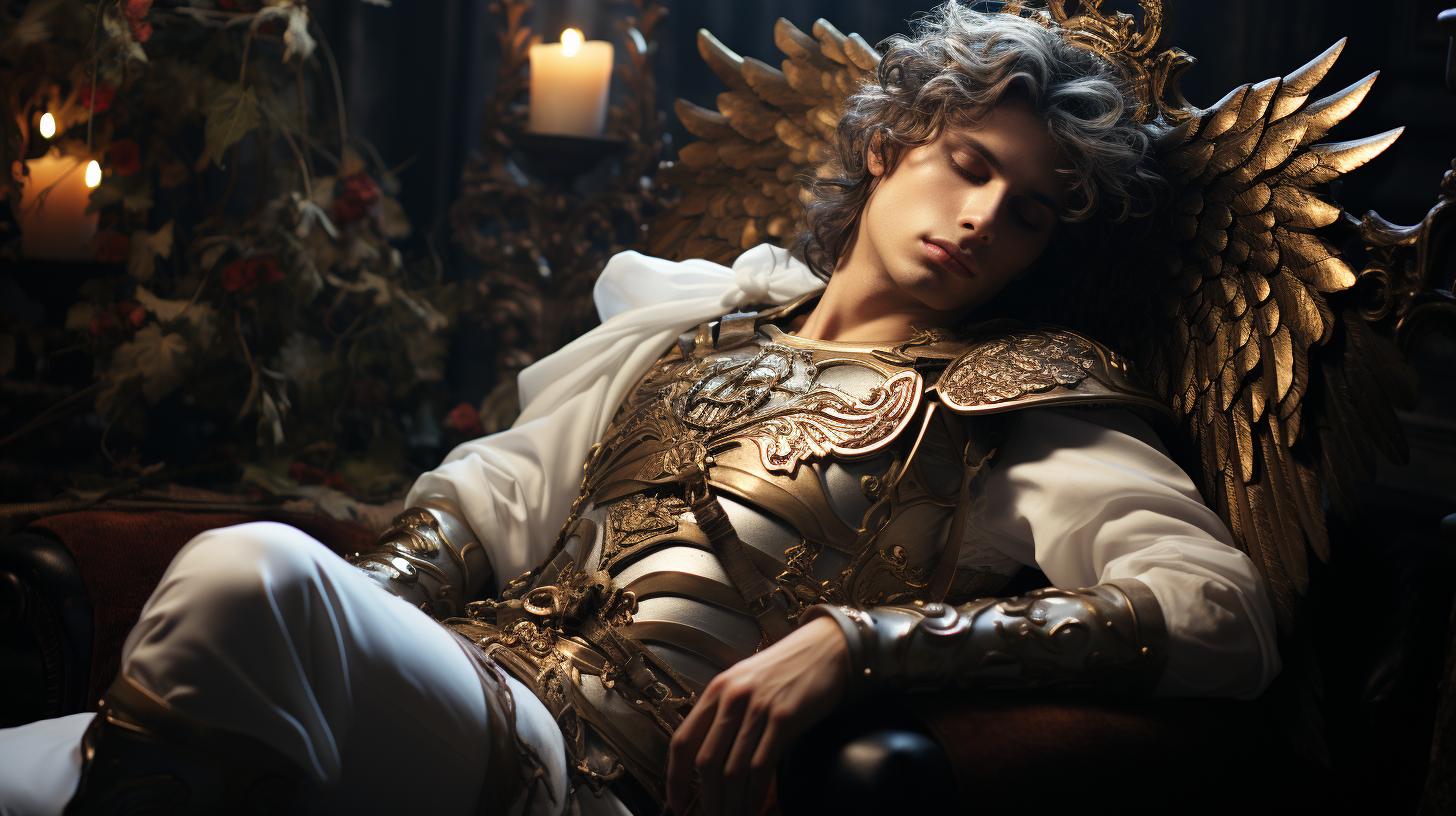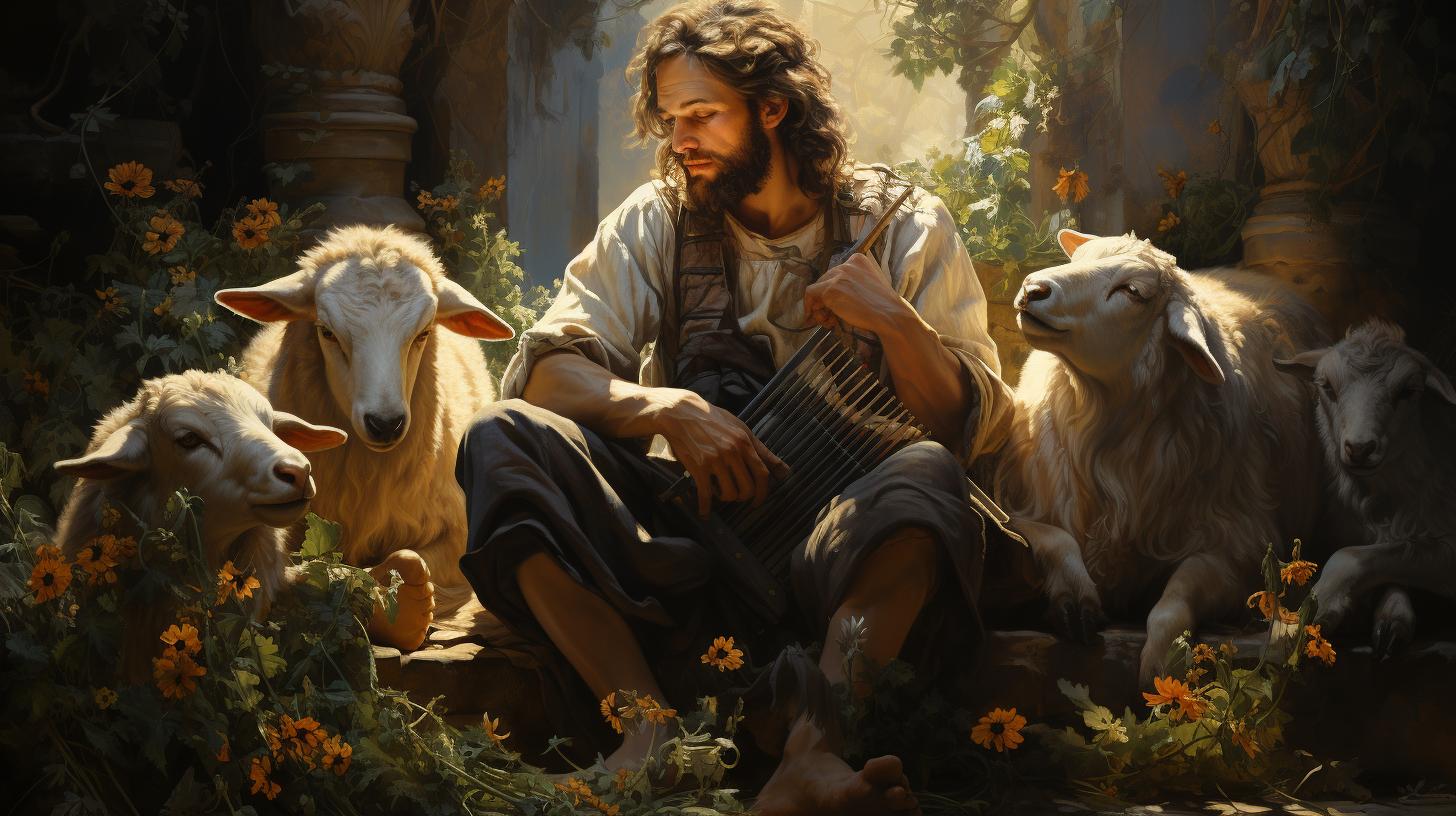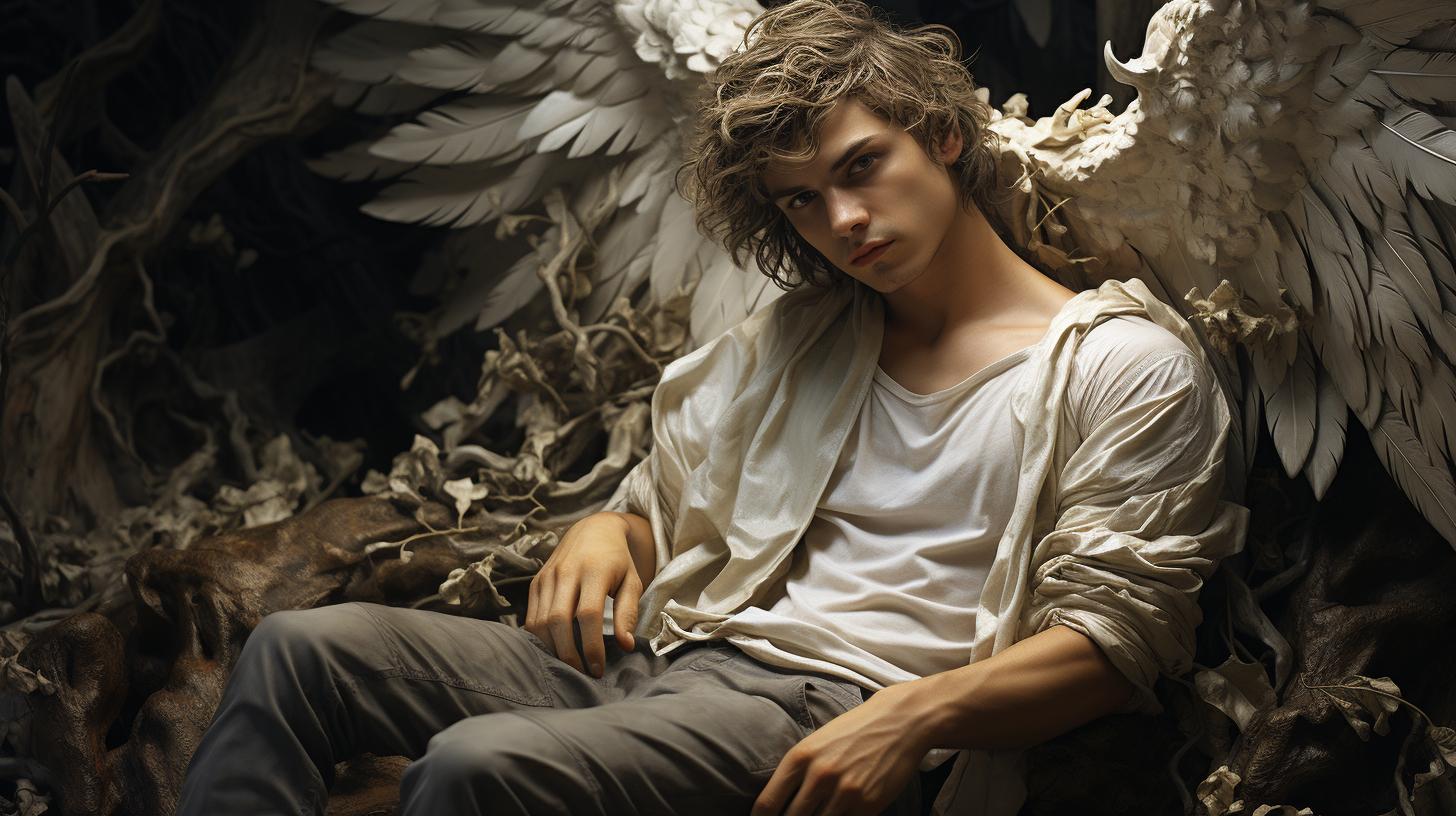Who is the Greek God Dionysus? Unveiling the Deity of Fertility, Wine, Pleasure, and Revelry
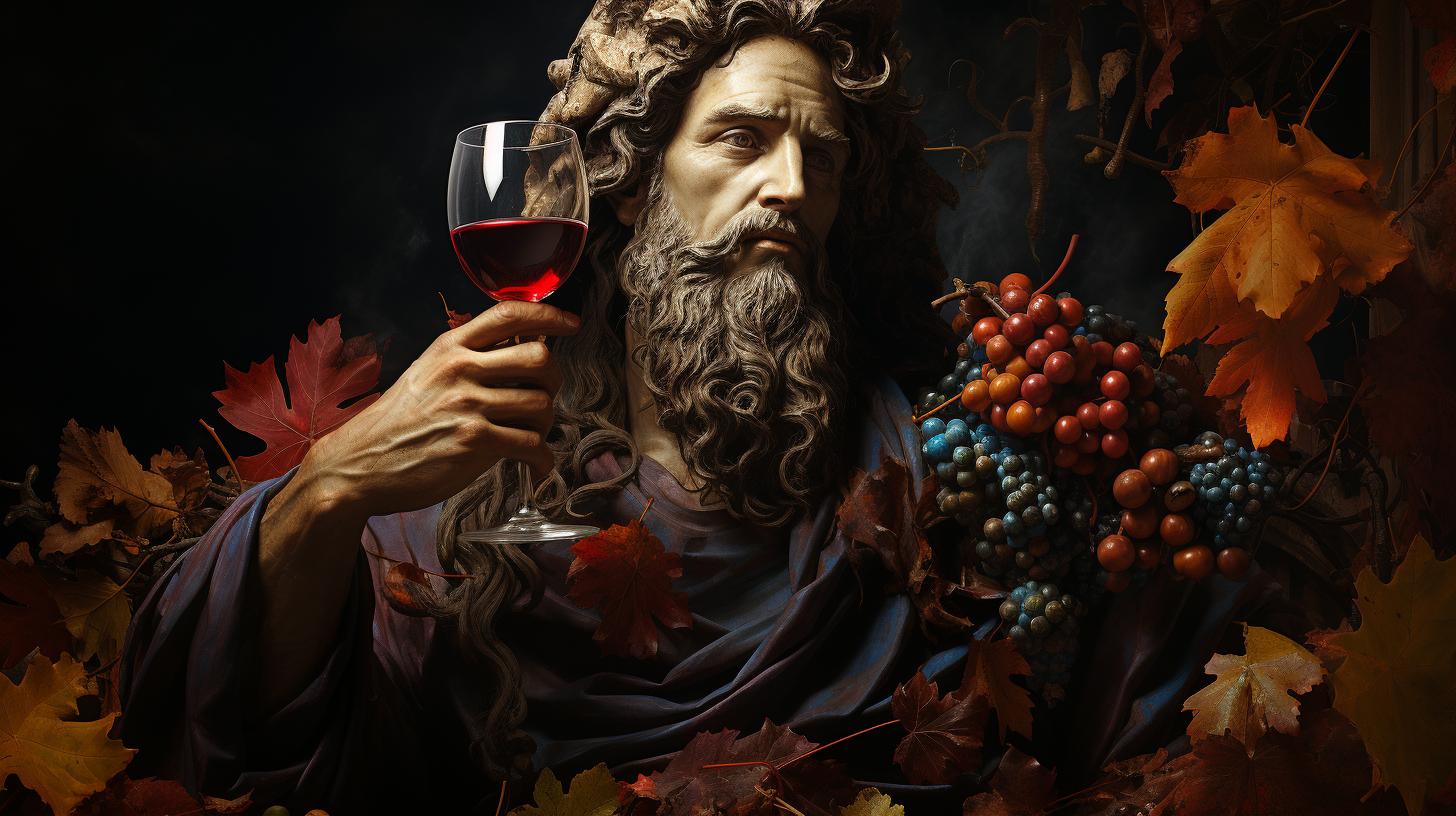
Dionysus, also known as Baco, is the Greek god of fertility, wine, pleasure, and revelry. He was the son of Zeus and the mortal princess Semele. Dionysus traveled to different places, spreading vine cultivation and knowledge.
Accompanied by satyrs and possessed women called Maenads, he embodied ecstasy. Dionysus’ cult was associated with excessive drinking and decadence, giving rise to the term “bacchanal” for wild parties. Depicted as an older bearded man or a beautiful nude youth, Dionysus always represented the symbols of wine.
This article explores his mythology, influence, and artistic representations.
Dionysus in Greek Mythology
Dionysus, a prominent figure in Greek mythology, holds a rich and fascinating backstory that captivates the imagination. This section delves into the origins of Dionysus, his parentage, and his association with the cult of Bacchus.
The Origins of Dionysus
The origins of Dionysus have roots in ancient Greek folklore.
According to mythology, he emerged from the thigh of Zeus, making him a unique and extraordinary deity.
Dionysus as the Son of Zeus and Semele
Dionysus was born to Zeus, the supreme god, and Semele, a mortal princess. Their union not only bestowed divinity upon Dionysus but also set the stage for his intriguing adventures and divine lineage.
Dionysus and the Cult of Bacchus
One of the most significant aspects of Dionysus is his association with the cult of Bacchus. This cult worshipped Dionysus as they indulged in various rituals and celebrations centered around wine, ecstasy, and revelry.
Exploring the depths of Dionysus’ mythology offers us a glimpse into the rich tapestry of ancient Greek culture and its intriguing pantheon of gods.
The Attributes and Symbols of Dionysus
Dionysus, the Greek god of wine and ecstasy, is associated with various attributes and symbols that represent his nature and influence. Let’s delve into the fascinating aspects of Dionysus’ character and worship.
Dionysus as the God of Wine and Ecstasy
At the core of Dionysus’ identity lies his association with wine and the state of ecstasy. The consumption of wine was considered an integral part of his worship, as it was believed to bring about a divine connection and a heightened state of mind.
The ecstatic rituals and celebrations dedicated to Dionysus often involved excessive drinking, leading to uninhibited behavior and a release of inhibitions.
Depictions of Dionysus in Art
Throughout the ages, artists have sought to capture the essence of Dionysus through their creative expressions. Paintings, sculptures, and other art forms have depicted Dionysus in various ways, showcasing his transformation from an older bearded man to a youthful and attractive figure.
These artistic representations often emphasized the association with wine, with Dionysus depicted holding grapes, vine leaves, or a goblet filled with the divine nectar.
The Role of Satyrs and Maenads in Dionysian Worship
In the worship of Dionysus, satyrs and Maenads played significant roles.
Satyrs, half-human and half-animal creatures, were known for their wild and mischievous nature. They accompanied Dionysus during his revelries and were considered his loyal followers and companions. Maenads, on the other hand, were possessed women who surrendered themselves to the intoxicating frenzy of Dionysian rituals.
Their wild dances and ecstatic behavior symbolized the liberation from societal norms and the indulgence in Dionysian pleasures.
In conclusion, Dionysus stands as the god of wine, ecstasy, and revelry, associated with symbols that represent his transcendence and transformation.
Through art and mythology, his attributes and the roles of satyrs and Maenads in his worship continue to intrigue and captivate us, showcasing the enduring legacy of this Greek deity.
Dionysus’ Travels and Influence
Dionysus, the Greek god of wine and ecstasy, embarked on various journeys across Greece, imparting knowledge about viticulture and spreading his influence throughout the land.
Dionysus’ Journeys and Teachings on Viticulture
During his travels, Dionysus roamed from region to region, planting vineyards and teaching people the art of viticulture. He introduced innovative techniques and shared his wisdom, transforming winemaking practices in Greece.
Dionysus encouraged the cultivation of grapes and emphasized the importance of proper wine production, contributing to the development of Greek winemaking traditions.
Dionysus’ Association with Naxos and Ariadne
One notable connection in Dionysus’ travels is his association with the island of Naxos and the myth of Ariadne. According to legend, Dionysus encountered Ariadne on the island after she was abandoned by Theseus.
Dionysus fell in love with her, and they became partners. This union symbolizes rebirth and fertility, as Dionysus brought new life and prosperity to Ariadne and the island of Naxos.
Dionysus in the Mythology of Other Greek Gods
Dionysus’ influence extended beyond his direct travels, featuring prominently in the mythology of other Greek gods.
He was associated with the story of Orpheus, the legendary musician and poet, who journeyed to the underworld to retrieve his beloved wife Eurydice. Dionysus played a significant role in the preservation and dissemination of Orpheus’ teachings and musical legacy.
Additionally, Dionysus’ encounters with other gods, such as Zeus and Hermes, further established his influence and presence in Greek mythology. These interactions often showcased the power of Dionysus and his ability to captivate and inspire even the mighty Olympian deities.
Dionysus’ travels and interactions left an indelible mark on Greece, shaping the cultural significance of wine, celebrations, and ecstatic rituals. His teachings on viticulture and his association with various Greek gods solidified his role as a transformative and influential deity in ancient Greek society.
The Legacy of Dionysus
The legacy of Dionysus extends far beyond his mythological origins, leaving a lasting impact on Greek culture, festivals, rituals, and even Roman mythology. Let’s explore various aspects of Dionysus’ legacy that have shaped ancient civilizations:
Dionysus’ Influence on Greek Culture and Festivals
- The worship of Dionysus played a significant role in ancient Greek culture, influencing various aspects of society, including art, theater, and philosophy.
- His association with wine and ecstasy formed the basis for the Dionysian Mysteries, secret religious rites that celebrated his divine presence.
- The annual festival known as the Dionysia was held in Athens, showcasing theatrical performances and dramatic competitions in honor of Dionysus.
- Dionysus’ influence can be seen in the development of Greek tragedy, with playwrights like Aeschylus, Euripides, and Sophocles incorporating his mythology into their works.
Dionysian Rituals and Bacchanalian Celebrations
- The worship of Dionysus involved various rituals and celebrations characterized by ecstatic dancing, music, and drinking.
- Bacchanalian revelries, known as Bacchanalia, were wild and uninhibited celebrations held in honor of Dionysus, marked by excessive indulgence, resulting in a temporary release from societal norms.
- During such celebrations, followers of Dionysus, especially the Maenads, would engage in frenzied dances, often accompanied by the consumption of copious amounts of wine.
- These rituals allowed individuals to experience a sense of liberation, blurring social boundaries and embracing the primal and ecstatic aspects of human nature.
The Transformation of Dionysus in Roman Mythology
- In Roman mythology, Dionysus was identified with the god Bacchus, and his influence continued to permeate through Roman culture.
- Bacchic cults and festivals spread throughout the Roman Empire, adopting many of the practices and rituals associated with Dionysus.
- The Roman interpretation of Dionysus emphasized his role as the god of wine, pleasure, and excess, incorporating him into their pantheon of deities.
- Despite the assimilation into Roman mythology, the essence of Dionysus and his association with unrestrained revelry remained a prominent feature of Bacchanalian celebrations in ancient Rome.
Exploring the legacy of Dionysus allows us to understand the profound cultural and spiritual impact that this ancient Greek deity had on societies throughout history.
From the establishment of festivals and rituals to the artistic representation in theater and art, Dionysus continues to inspire and captivate our imaginations.
Exploring Dionysus Further
As we delve deeper into the realm of Dionysus, there are various aspects that warrant exploration. From notable works of art to recommended readings and resources, as well as Dionysus’ presence in modern media and popular culture, we continue our journey into the fascinating world surrounding this Greek god.
Notable Works and Artifacts Related to Dionysus
Throughout history, numerous artistic creations have been inspired by Dionysus and his captivating mythology. Paintings, sculptures, and other forms of visual art have depicted this god in various contexts, portraying his divine essence and the essence of wine and ecstasy he represents.
Additionally, archaeological finds have uncovered ancient artifacts such as pottery and drinking vessels adorned with images associated with Dionysus, shedding light on the significance of his worship in ancient Greece.
Recommended Readings and Resources on Dionysus
For those seeking to delve deeper into the realm of Dionysus, there exist several recommended readings and resources that offer valuable insights.
Scholars and historians have extensively studied Greek mythology and Dionysus, producing scholarly works that explore his mythology, symbolism, and worship. Additionally, online resources ranging from academic articles to curated collections and exhibitions provide a wealth of information for anyone interested in further understanding Dionysus and his significance in ancient Greek culture.
Where to Find Dionysus in Modern Media and Popular Culture
Dionysus continues to captivate modern audiences through his enduring presence in various forms of media and popular culture. Whether it be in literature, theater, film, or even music, the influence of Dionysus can be observed in numerous contemporary works.
Exploring these artistic creations allows us to witness the ongoing impact of Dionysus’ mythology and symbolism in shaping narratives and evoking the enduring allure of wine, pleasure, and revelry.
As you embark on your journey of exploration, may Dionysus guide you through the realms of art, literature, and culture, enticing you with his intoxicating mysteries and inspiring you to further discover the depth of his mythological realm.
.











